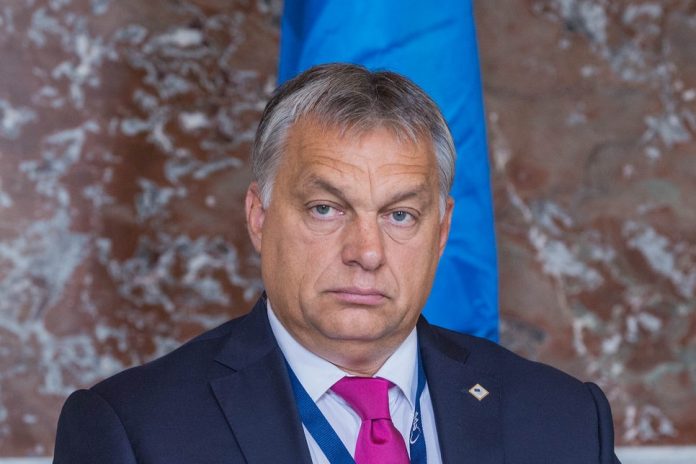Hungary’s newly re-elected prime minister has vowed to make significant changes in his third term in office.
“We will not continue governing, but a new government will be formed instead,” said Viktor Orban, who won a third consecutive term – and fourth overall – in the parliamentary election on April 9. “We don’t intend to extend the previous term but instead we will open a new term. Thus, significant changes and modifications can be expected.”
As reported by The Associated Press (AP), near-complete election results show Orban’s Fidesz party winning a supermajority of 134 seats in the 199-seat national assembly. Votes sent by mail from abroad were still being counted and could slightly alter the current result, but the sweeping victory of Orban, Fidesz, and its small ally, the Christian Democrat party, was not in question.
Critics charge Orban with weakening the democratic system of checks and balances, enriching a new oligarch class of cronies with the help of funds from the European Union and greatly concentrating power. Orban is also pursuing his stated goal of turning Hungary into an “illiberal state” modelled on countries like Russia and Turkey.
Orban, however, said the country was a “constitutional democracy” and functioning as such.
“Hungary continues to stand on constitutional foundations,” he told reporters. “Within those, we will do everything that serves the interests of the people.”
Orban also said “favoured relations” would continue with Poland and the German region of Bavaria, whose politicians came to Hungary to support his re-election campaign.
“From Bavaria, Manfred Weber visited us and stood beside us, beside me,” Orban said. “He is also the leader of the European People’s Party but I saw Bavarian support in his participation. And the Polish prime minister and the president of the Polish government party.”
“They supported all that we do and they expressed the friendship of the Bavarian and Polish people,” Orban continued. “For me, these two relations will be the favoured relations in the future, as well.”
According to AP, some 20% of Hungarian exports go to Germany, whose car factories are among the country’s biggest investors and employers. Still, relations between Orban and German Chancellor Angela Merkel have been weighed down by their differences over immigration.
For instance, Orban is fervently anti-migration and based his re-election campaign on the demonisation of the mainly Muslim migrants coming to Europe.
“As soon as we know what Germany’s policies are, we can immediately answer this question,” Orban said after being asked about possible changes in Hungary’s policy toward Germany.
“We would like to establish continually improving relations with every country,” Orban said. “This applies to Germany, too, but I was elected not by the German people but by the Hungarians.”
In a separate report, Voice of America (VOA) online noted that election monitors from the Organisation for Security and Cooperation in Europe (OSCE) warned on April 9 that “media bias” in favour of Hungary’s ruling party made it hard for opponents of the prime minister to compete with him on a level playing field. It said the public broadcaster clearly favoured the ruling coalition”.
In a statement, the OSCE said voters in Hungary had a “wide range of political options,” but said “intimidating and xenophobic rhetoric” along with media bias made it hard for the country to have a “genuine political debate”.

